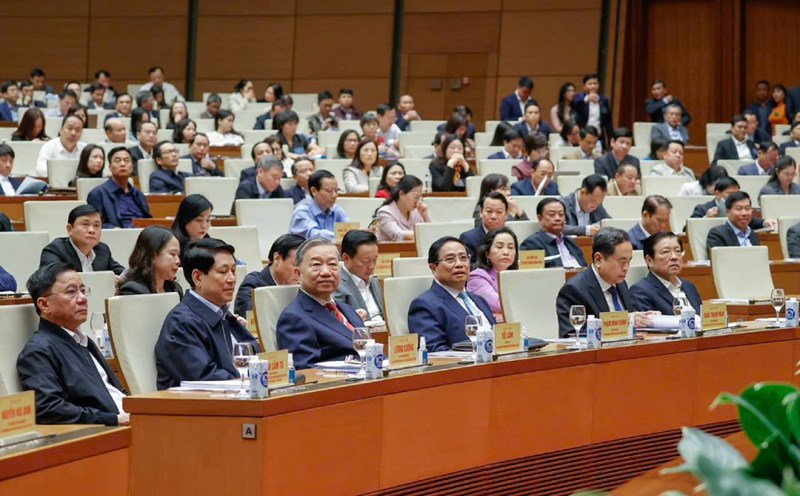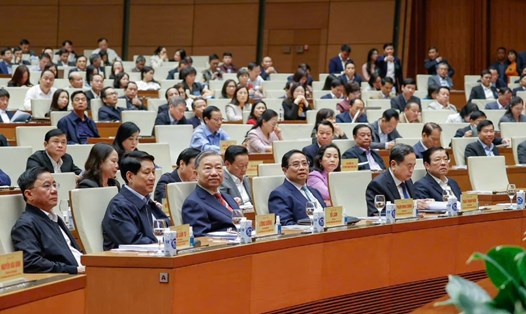On behalf of the Politburo, Politburo member and Standing member of the Secretariat Tran Cam Tu has just signed and issued Directive No. 42 of the Politburo on "Strengthening the Party's leadership in education work of need, thrift, integrity, fairness, impartiality".
The Directive requires and disseminates widely, making cadres, party members and people of all walks of life realize that thrift, thrift, fairness, and impartiality are the top important moral qualities of cadres, party members, civil servants, and public employees and the urgency of education and practice of thrift, impartiality, fairness, and impartiality within the Party, the political system and the whole society. Raising awareness and responsibility of Party committees, Party organizations, authorities, and heads in leading and organizing the implementation of Party regulations and State laws on education, practicing thrift, thrift, integrity, fairness, and impartiality.
"Closely link the work of education, thrift, integrity, fairness and impartiality with the work of Party building and rectification, especially the work of cadres, study and follow Ho Chi Minh's ideology, morality and style, implement the Party's regulations on the responsibility to set an example, on revolutionary ethical standards of cadres and party members in the new period", the Directive stated.
According to the Directive, the Politburo requires the synchronous implementation of 4 major policies: Promoting education needs, thrift, integrity, fairness, impartiality to "not wanting corruption, waste, negativity" along with tightening discipline, strengthening inspection, supervision, control of power, perfecting strict institutions to "not be corrupt, wasteful, negative"; handling violations without forbidden areas, without exceptions to "not dare to corrupt, waste, negative"; improving the lives of cadres, party members, civil servants, public employees, and workers to "not needing corruption, waste, negativity".
The Politburo's Directive states that cadres and party members, first of all, key cadres, leaders, managers, heads of Party committees, Party organizations, and authorities at all levels, must set an example in studying and practicing revolutionary ethical standards in the new period, especially in need, thrift, integrity, fairness, and impartiality:
Passion, responsibility, diligence, dedication to assigned work; thrift, no luxury, waste; keep yourself clean, no corruption, negativity, no trouble, harassment; honest, straightforward, fair, objective;
Resolutely and exemplaryly comply with Party regulations, State laws, codes of conduct, public service and professional ethics; see the right to protect, see the wrong to fight; strictly implement the Party Charter, Party discipline, regulations on what Party members are not allowed to do and regulations on setting an example; be honest, honorable, proactively take responsibility when you and your relatives are corrupt or negative; actively criticize yourself and criticize yourself, fight against individualism, fight against corruption, waste, or negativity; dare to think, dare to do, dare to take responsibility for the development of the country, for the happiness of the people. Regularly practice thrift, thrift, integrity, fairness, impartiality anytime, anywhere, in work and daily life.
The Politburo's Directive also requires innovation, improvement of content, form, and methods to improve the effectiveness of education work of thrift, impartiality, fairness, and impartiality, suitable for each subject; fostering knowledge and improving skills for the force of reporters, lecturers, and teachers.
Bring the content of revolutionary ethics in general, the content of need, thrift, integrity, fairness, and impartiality in particular into one of the main programs in training, fostering political theory, fostering and updating knowledge for leaders and managers at all levels, training programs, fostering cadres at the Ho Chi Minh National Academy of Politics, academies, schools in the army, police, political schools in localities, training schools, and fostering cadres at all levels.











